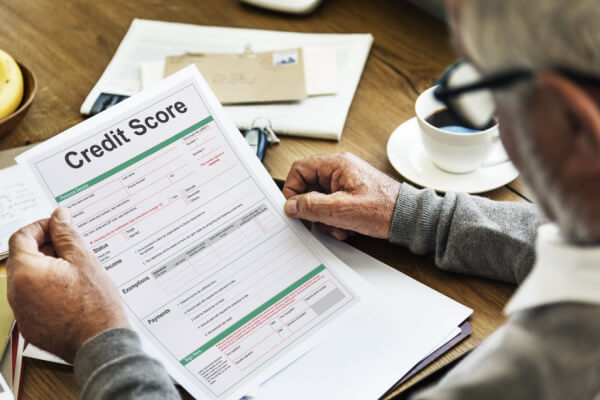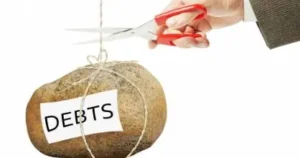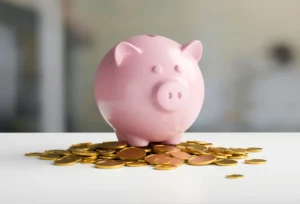Almost everyone struggles with debt at some point in their lives: student loans, car loans, mortgages, or credit card bills. But there’s one question you’re often asked about your financial health: “Does debt affect your credit score?” It’s a lot more complicated than a simple “yes” or “no.” While debt itself isn’t a bad thing, how you handle it can have a significant impact on your credit score. Many people find it difficult to understand the connection between debt and credit. Sometimes it can even be scary. Understanding it can help you make smart financial decisions that will impact your future.
What is a Credit Score and How is it Determined?
A credit score is essentially a numerical representation of your creditworthiness. These ratings help lenders assess the risk of lending money to you. The higher your score, the more likely you are to get approved for a loan and at a favorable interest rate. From a credit bureau’s perspective, debt is a natural part of your financial situation. Whether your credit score improves or decreases depends on several factors, such as the type of debt, your payment history, and the amount you owe. In this post, we’ll explore how different types of debt affect your score and provide an analysis of wise debt utilization.
Credit Utilization
Your credit utilization ratio is the first major factor that determines how debt affects your credit score. It compares the total amount of credit available to you to the amount of revolving credit you’re using. Assuming your credit card limit is $10,000 and your balance is $5,000, your utilization ratio is 50%. To prevent your credit score from going down, credit bureaus recommend keeping this ratio below 30%, and preferably below 10%. A high utilization ratio indicates that you may have too much debt and may have difficulty paying it back, which can lower your score.
Strength of Payment History
Your payment history is another important factor that makes up the bulk of your credit score. This shows whether you have met your obligations on time. Consistently paying on time shows a sense of responsibility and can help keep your credit score up even when you are in debt. Conversely, especially if you are 30 days or more behind on your payments, a single missed payment can result in significant losses. The longer you pay your bills on time, the more attractive your credit score will be to lenders.
The Importance of the Type of Debt
The type of debt you have also plays a role. The two main types of debt are term loans (such as student loans or car loans) and revolving credit (including credit cards). A good mix of both types can significantly improve your credit score because it shows that you can manage various financial obligations. On the other hand, there can be serious consequences if you overpay your credit card debt or default on your installment loan. By implementing responsible debt management, you show lenders that you are financially healthy.
The Importance of the Length of Your Credit History
Another factor to consider is the length of your credit history. The more data the credit bureaus have to assess your behavior, the longer you will have active credit accounts. Closing old accounts can sometimes negatively impact your credit score, especially if you have not had a bad history with those accounts. Even if you have paid off your debts, keeping your accounts open can increase your years of credit and total credit limits, which can improve your credit score.
New Credit Checks and Their Effects
Another important indicator is the number of recent credit applications or the number of new accounts opened. If you are applying for multiple additional lines of credit in a short period of time, that is cause for concern. You may be taking on more debt than you can afford. Each hard inquiry can drop your score by a few points right away. While soft inquiries (such as checking your personal credit) do not affect your score, hard inquiries from lenders certainly do. You should only apply for new credit if it is absolutely necessary.
Paying Off Debt Doesn’t Always Erase It
It is also important to remember that paying off certain debts will not immediately improve your credit score. For example, settling a collection order will not remove it from your credit history. On the other hand, newer credit scoring systems can ignore payments made, especially medical debt. This highlights the importance of understanding how different credit scoring systems work and which system applies to your lender.
Financial Avoidance
We cannot ignore the psychological dimension of guilt. Debt can cause anxiety and cause people to delay addressing financial problems. Often, people skip checking bank statements and balances, which only makes the problem worse. Being proactive about your debt is not only good for your financial health, but also for your mental health. It is very helpful to understand your spending habits, create a reasonable budget, and seek professional help if necessary.
Using Debt to Promote Financial Development
What you do with your debt ultimately determines how it affects your credit score. When used properly, debt can be a tool for financial development: it helps you build credit, buy what you need, and achieve your long-term goals. However, when mismanaged, it can quickly become a financial burden with long-term consequences. Getting your debt under control requires discipline, financial knowledge, and sometimes the help of resources or advisors.
Conclusion
Ultimately, debt itself doesn’t affect your credit score; it’s debt management that matters most. The most important strategies include tracking your credit utilization, making regular payments, maintaining a good mix of credit types, and avoiding frivolous credit applications. Good habits and a proactive attitude can help you use debt to your advantage and build a strong, resilient credit profile. Your credit score is more than just a number; it reflects your financial behavior and is a tool that can open or close doors in your life. If you handle it carefully, your future self will thank you.
FAQs
1. Does debt lower your credit score?
Not really. Debt can only lower your score if it’s not handled properly, such as by making late payments or using excessive credit.
2. What type of debt has the biggest impact on your credit score?
Because credit card debt affects your utilization ratio and is considered a revolving debt, it tends to have a more immediate impact.
3. Will my credit score improve immediately if I pay off all my debt?
While not all loans disappear from your statement immediately after repayment, it can be helpful, especially for credit utilization.
4. Should you pay off your loans or credit cards first to improve your credit score?
Paying off a high-interest credit card can be better for your credit score in the short term because of the effect it has on your utilization.
5. Are you struggling with low debt and is your credit score suffering?
Absolutely. A lack of active credit or too few accounts can complicate credit verification by limiting the information available to determine your score.




